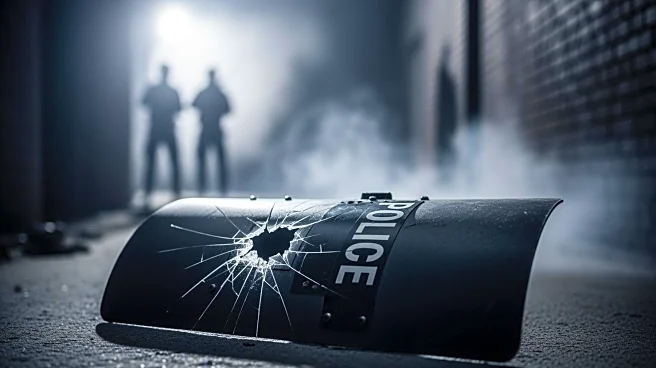What's Happening?
A police operation in Rio de Janeiro targeting the Red Command gang has resulted in at least 132 deaths, marking the deadliest raid in the city's history. The operation took place in the favelas of Alemão
and Penha, areas known for gang activity. The raid was part of a larger effort to curb gang violence ahead of major international events in Brazil, including the COP30 climate summit. The operation involved both civil and military police, and was reportedly planned over two months. The high casualty count has sparked controversy and criticism from various quarters, including Brazil's President Luiz Inácio Lula da Silva and the United Nations Human Rights office.
Why It's Important?
The raid underscores the ongoing struggle between law enforcement and organized crime in Brazil, particularly in urban areas like Rio de Janeiro. The high number of casualties raises concerns about human rights and the use of force by police. The operation's timing, ahead of international events, highlights the pressure on Brazilian authorities to address security issues. The incident may impact Brazil's international reputation, especially in terms of human rights and governance. The raid also reflects broader challenges in combating drug trafficking and gang violence, which have significant social and economic implications for the country.
What's Next?
The aftermath of the raid is likely to involve investigations into the conduct of the police and the circumstances leading to the high death toll. The Brazilian government may face increased scrutiny from international human rights organizations and pressure to reform policing practices. The incident could also influence upcoming elections, as public opinion on security and governance may shift. The Red Command gang's activities and territorial control may be affected, potentially leading to further violence or power struggles within the criminal underworld.
Beyond the Headlines
The raid highlights the complex relationship between crime, poverty, and governance in Brazil. The use of drones and explosives by gang members indicates a level of sophistication and resourcefulness that challenges traditional policing methods. The situation raises ethical questions about the balance between security and human rights, and the role of the state in addressing systemic issues like poverty and inequality that contribute to crime. The international community may view the incident as a case study in urban security and the challenges of maintaining order in areas with entrenched criminal activity.









